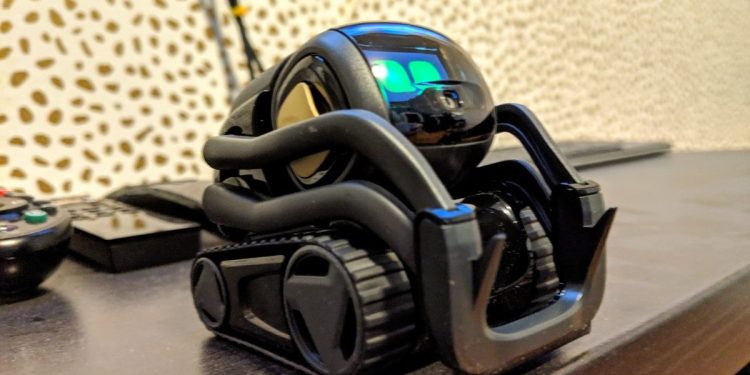Watch all the Transform 2020 sessions on-demand here.
Anki, which shuttered in April after burning through almost $200 million in venture capital financing, could have a new lease on life — or a life extension, at least. As first spotted by The Verge, Pittsburgh-based educational tech startup Digital Dream Labs this week announced it will pick up development of Vector, Anki’s most recent robot, in the coming months.
Digital Dream Labs plans to kick off a Kickstarter campaign to fund the launch of two new products for Vector owners. The first — an Escape Pod — will enable the robot to work offline sans internet connection to Anki’s cloud datacenters, while the second — an open source development kit and a custom bootloader — will allow Vector owners to create and make available new features and functionality.
“The most important part of this update is to let you know we have taken over the cloud servers and are going to maintain them going forward,” wrote Vector CEO Jacob Hanchar in a blog post. “This is just the beginning and subject to change, but because you have shown such loyalty and got this project off the ground in the first place, I felt it was necessary to communicate these developments as soon as possible!”
Anki, the San Francisco startup behind AI-imbued robotics toys like Overdrive and Cozmo as well as Vector, shut down in April 2019 immediately after laying off its workforce of just over 200 people. A failed round of financing was reportedly to blame. CEO Boris Sofman told employees that a deal failed to materialize “at the last minute,” as did acquisition interest from companies such as Microsoft, Amazon, and Comcast.
June 5th: The AI Audit in NYC
Join us next week in NYC to engage with top executive leaders, delving into strategies for auditing AI models to ensure fairness, optimal performance, and ethical compliance across diverse organizations. Secure your attendance for this exclusive invite-only event.
Anki claimed to have sold 6.5 million devices total, and 1.5 million robots last August alone. (Cozmo was the top-selling toy on Amazon in 2017 with a community of more than 15,000 developers.) And in fall 2018, the company revealed that revenue was close to $100 million in 2017, a figure it expected to beat the subsequent year.
Anki, which Sofman, Mark Palatucci, and Hanns Tappeiner founded in 2010 with the mission of “bring[ing] artificial intelligence and robotics into [users’] daily lives,” made a splash six years ago with its smartphone-controlled car set Anki Drive (alternatively Anki Overdrive), which was demonstrated onstage at Apple’s 2013 WorldWide Developer Conference. Anki later became an Apple retail partner and introduced several Overdrive accessories, including a series with Hot Wheels branding.
Cozmo — a cute robot toy that made use of Anki’s deep artificial intelligence research and a team of Pixar and Dreamworks animators — debuted in October 2016, ahead of Vector. But despite their novelty and sophistication, the robots shared relatively high launch price points ($180 for Cozmo and $249 for Vector), which likely contributed to their slow uptake in the notoriously unforgiving consumer robotics space.
Anki’s closure followed the shuttering of Bosch-backed startup Mayfield Robotics, which was developing a larger, pricier ($700) home robot dubbed Kuri. Robotics company Jibo, which engineered a social robot featuring a bespoke conversational assistant, shut down earlier this year. In somewhat related news, industrial robotics company Rethink Robotics closed its doors seven months ago after attempting unsuccessfully to find an acquirer.


